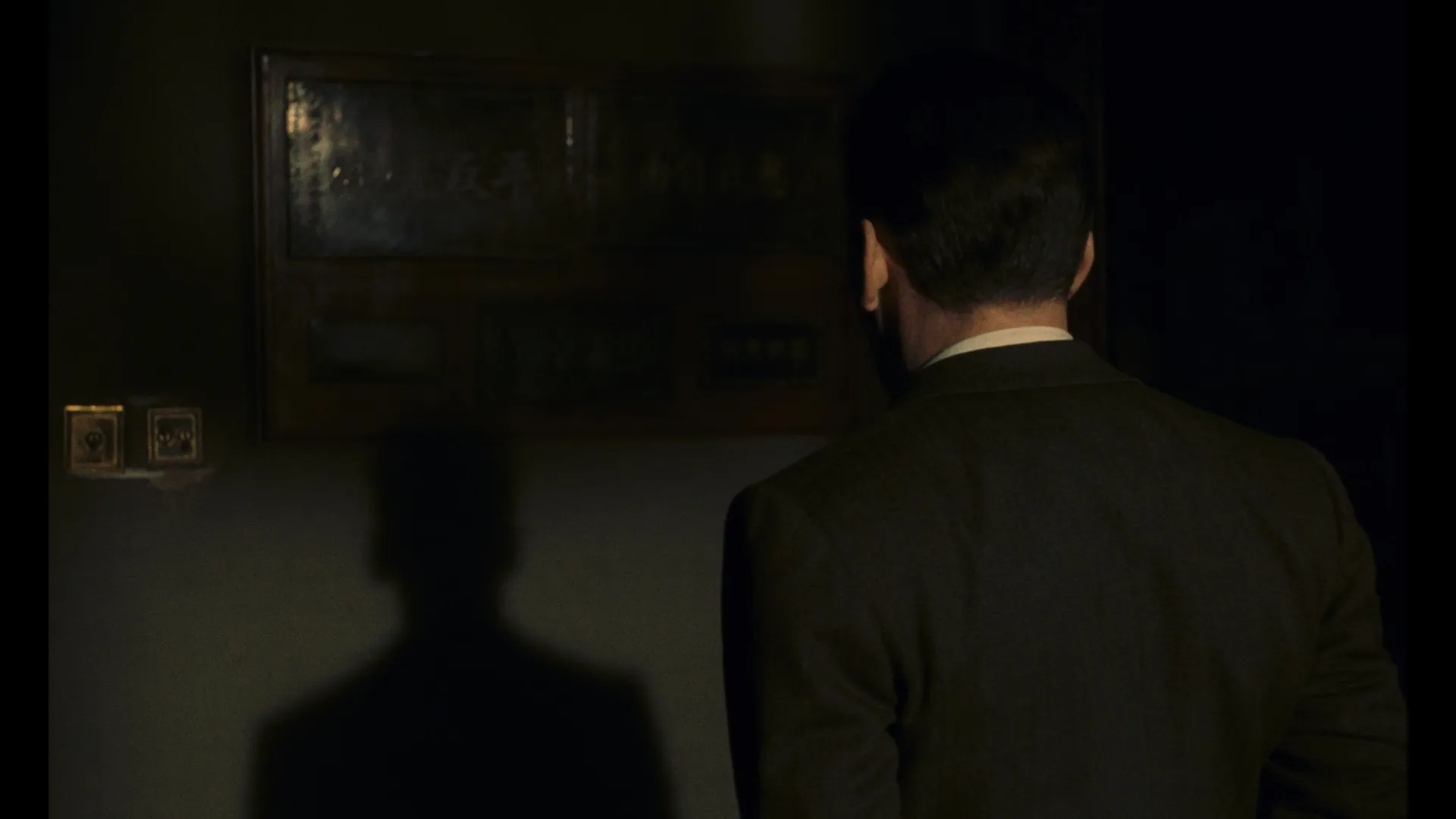
© Mars Film
The Comfort of Conformity
Film
Il conformista
Year
1970
Director
Bernardo Bertolucci
DOP
Vittorio Storaro
Country
Italy
Timestamp
00:58:04
25.10.2025
Bernardo Bertolucci’s The Conformist (1970) stands as one of cinema’s most penetrating examinations of why ordinary people become fascists. Unlike films that depict fascism as a monstrous aberration imposed from above, Bertolucci’s masterpiece, adapted from Alberto Moravia’s 1951 novel, explores fascism as a psychological refuge for those terrified of their own difference. Set in 1938 Italy during Benito Mussolini’s regime, the film follows Marcello Clerici (Jean-Louis Trintignant), a mid-level functionary in the Fascist secret police who is ordered to assassinate his former university professor, an anti-Fascist dissident in Paris. But this is not a thriller about heroism or resistance—it is a devastating portrait of conformity as self-erasure, of how the desperate need to appear “normal” can lead individuals to commit unspeakable acts.
Bertolucci’s Adaptation
When 29-year-old Bertolucci adapted Moravia’s novel in 1970, he transformed it into something even more complex. Working with 28-year-old cinematographer Vittorio Storaro and production designer Ferdinando Scarfiotti, Bertolucci created a film that functions simultaneously as political analysis, Freudian case study, and visual symphony.
The film’s non-linear structure, constantly looping through time via flashbacks and flash-forwards, mirrors Marcello’s fragmented psyche. We first meet him in 1938 Paris, preparing to assassinate Professor Quadri while on his honeymoon with wife Giulia (Stefania Sandrelli). From there, the narrative spirals backward and forward: Marcello’s bullied childhood, his encounter with Lino, his desperate attempts to join the Fascist secret police, his confession to a priest, his courtship of Giulia, his reunion with Quadri in Paris, his affair with Quadri’s wife Anna (Dominique Sanda), the assassination, and finally the film’s stunning coda in 1943 as fascism collapses
Plato’s Cave: The Philosophy of Blindness
One of the film’s most intellectually sophisticated elements is its sustained engagement with Plato’s Allegory of the Cave. In a pivotal scene, Professor Quadri reminds Marcello of a lecture he once gave on Plato’s famous allegory: prisoners chained in a cave their entire lives can only see shadows cast on the wall by a fire behind them. These prisoners mistake shadows for reality because they have never seen anything else. If one prisoner were freed and dragged into the sunlight, he would at first be blinded and in pain—but eventually, he would see the true world and realize the cave was a prison of illusion
The allegory of blindness recurs throughout the film. Marcello’s friend Italo is literally blind, as are all the guests at Marcello’s bachelor party, a heavy-handed but effective symbol that only the unseeing could embrace fascism. Before the assassination, Marcello dreams he is blind and that Quadri appears as a surgeon offering to restore his sight, yet Marcello proceeds to have Quadri murdered, thereby “killing the one man who could lead him out of the blindness of his own life”.
This imagery reaches its climax in the film’s ending, when Marcello encounters Lino alive and realizes the foundational lie of his entire life—that he is a murderer. In that moment, “he’s completed the journey within himself,” Storaro explained, and turns toward the camera in the film’s final shot, staring directly at the audience as if emerging from Plato’s cave. The question the film leaves us with: Has Marcello finally seen the light, or is he merely turning away from one set of shadows toward another?
The Assassination: Cinema’s Coldest Murder
The film’s centerpiece is the assassination of Professor Quadri and his wife Anna in a snowy forest. It is one of the most formally perfect and emotionally devastating sequences in cinema.
Marcello and Manganiello follow Quadri and Anna’s car along a winding mountain road. When the assassins force Quadri’s car to stop, Manganiello and other agents attack the professor with knives. Anna flees into the snow, desperately trying to escape, her hands leaving bloody streaks on the assassins’ car windows. The camera remains largely static, observing with cold detachment as Anna is chased down and killed. Marcello watches from inside his car, doing nothing. He does not pull the trigger, he is too cowardly for that, but his inaction is itself an act of murder. His face remains almost expressionless, a blank mask.
Why Marcello Conforms
Bertolucci’s film asks: Why does someone become a fascist? The answer it provides is deeply unsettling because it suggests fascism appeals not to the strong but to the weak—not to those certain of their superiority but to those terrified of their difference.
Marcello joins the Fascists not out of ideological conviction but out of shame and fear. When a fascist recruiter interviews him, he notes that most people serve the regime for money, some from fear, and very few from conviction. Marcello doesn’t fit any of these categories—he serves because he desperately wants to be normal.
The word pronounced most frequently in the first half of the film is “normalità” (normalcy). Marcello strives for complete normalization. He chooses Giulia precisely because she is mediocre, “all bed and kitchen”, the most conventional woman imaginable. He wants to marry, have children, own a home, blend in. As he tells the priest during confession, he feels no guilt for his supposed sins because he doesn’t care about moral questions—he only cares about appearing normal.
The film’s psychological insight is that fascism provides cover for those ashamed of their own difference. By embracing the most extreme form of conformity available, joining the secret police. Marcello can hide his homosexual desires, his traumatic past, his essential emptiness. Fascism doesn’t ask him to have a genuine self; it asks only that he obey, that he perform loyalty, that he erase his individuality in service to the collective. Marcello is not a monster. He is frighteningly ordinary. And that is precisely what makes him so dangerous.